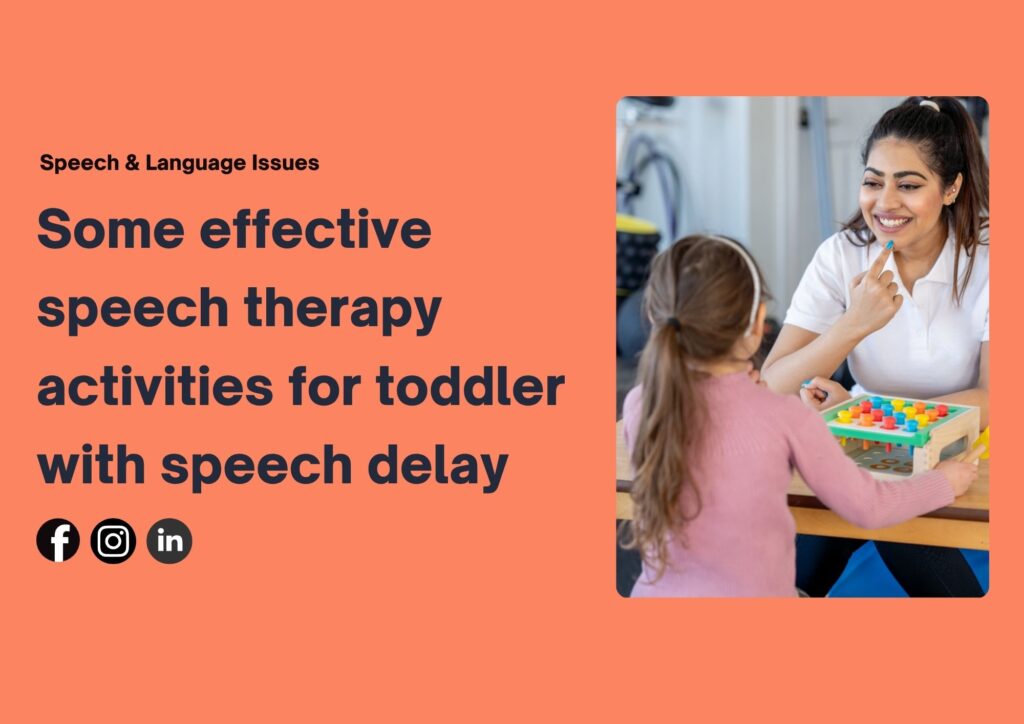
Effective Speech Therapy Activities for Toddlers with Speech Delay
Speech therapy intervention is crucial for toddlers experiencing speech delay because early support greatly enhances their ability to succeed both academically and socially. According to the National Institute on Deafness and Other Communication Disorders (NIDCD), children who do not receive timely help for speech and language delays are more likely to struggle with reading and writing skills as they grow older. Beginning speech therapy early provides your child with a strong foundation for effective communication, learning, and meaningful social connections.
Why Early Speech Therapy Matters for Toddlers
Speech delay doesn’t just affect a child’s ability to express words—it impacts how they connect with the world around them. Limited vocabulary or difficulty forming sentences can cause frustration, making it harder for toddlers to join group play or communicate their needs. Social isolation can follow, affecting self-esteem and emotional health.
Research from the National Institute on Deafness and Other Communication Disorders (NIDCD) shows that early speech therapy can improve language outcomes and reduce social challenges faced by children with speech delays. Early intervention can transform potential struggles into opportunities for growth.
Speech Therapy Through Play: The Most Effective Approach
One of the most important factors in teaching toddlers is making speech therapy fun and engaging. Toddlers learn best through play, and speech therapy activities should feel like playtime—not lessons.
How do you do that? Instead of directing your child with instructions, join their play as a buddy. Follow their lead, mimic their actions, and add your own creative twists to keep things enjoyable. This approach reduces pressure and motivates your toddler to communicate naturally.
Practical Speech Therapy Activities for Toddlers
- Match Your Child’s Language Level
If your toddler uses one-word phrases, respond with one word during play. For example, if they say “ball,” you say “ball” too, pointing to it with excitement. This shows you understand and encourages them to keep trying. - Gradually Expand Vocabulary
Once you have your child’s attention, add one more word to your phrase. Move from “ball” to “big ball” while using gestures to emphasize meaning. This helps build new words without overwhelming your toddler. - Use Repetition and Rhymes
Repetitive games and nursery rhymes are great speech therapy tools. Singing familiar songs with hand motions encourages speech rhythm and word recall. - Pretend Play
Encourage your child to use words during pretend play. For example, if playing with toy food, say “eat apple” or “drink juice” to model simple phrases. - Turn Taking Games
Simple turn-taking games like rolling a ball back and forth teach communication skills and patience, essential for conversations.
Consistency is Key in Speech Therapy
Make these speech therapy activities a daily routine. Regular practice helps toddlers absorb new words and speech patterns naturally. Remember, patience and positive reinforcement go a long way in motivating your little learner.
Ready to Support Your Toddler’s Speech Development?
Speech therapy is a journey best taken early and with the right support. Explore NeuroNurture Kids and Book a consultation with our certified speech therapists to receive personalized strategies tailored to your child’s unique needs. Together, we can turn speech challenges into milestones.